‘Perfect storm’: Experts predict surprise twist in Australia’s supply chain crisis
Aussie consumers are in for a world of pain in the weeks and months ahead – but there’s a surprising twist waiting for us all.
Australians have been hit by shortage after shortage recently, with bare shelves and sold-out products fast becoming the new normal.
Over the course of the pandemic, we’ve seen staples disappear from supermarkets due to panic buying.
Lockdowns in China saw factories shut down, impacting just about every consumer good under the sun.
A shortage of ships made it tough to snap up a new car, while airfreight and shipping lines have been severely impacted by Covid and other factors, sending prices soaring.
And with Omicron tearing through the nation and sending countless workers to their sickbeds or into isolation, the distribution of goods is now facing yet another crisis.
David Leaney, a lecturer for international supply chain management at ANU’s College of Business and Economics, told news.com.au things would “get worse before they get better”.
“The international (and national) supply chain is a complex chain with many links and dependencies,” he said.
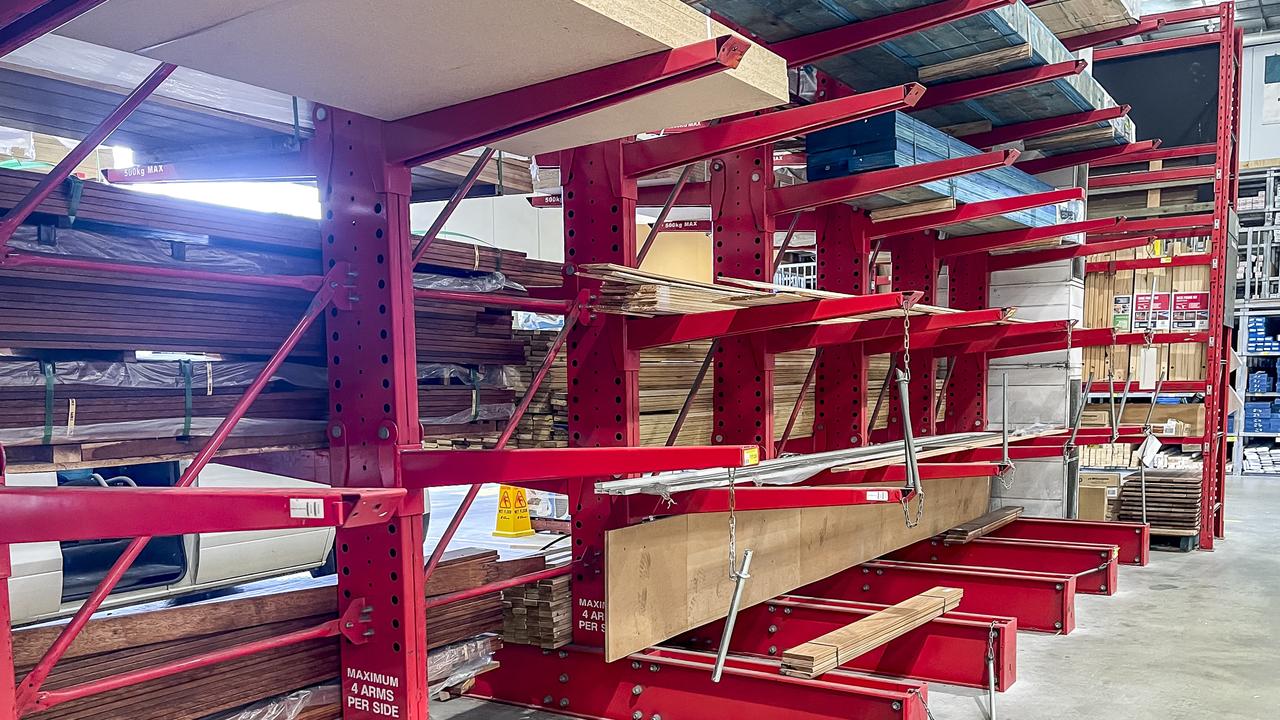
“Most of the current supply chain issues are caused by staff shortages due to Covid. This relates to staff shortages at all points along the supply chain.
“Stock is ‘stuck’ in various bottlenecks along the supply chain. Some of the problems are caused by panic buying.”
He added that things should slowly start to ease by the end of the holiday season, although issues would remain for some time.
“It will take months to solve these supply chain issues and return to a smooth efficient working international and national supply chain,” he said.
“In the meantime, the basic laws of supply and demand mean that prices will go up because demand outstrips supply.”
But he said there could be a twist in the supply chain saga looming, with excess stock – and therefore lower prices for shoppers – a clear possibility once things return to normality.
“[Prices] may drop to below normal as supply will be greater than demand,” he predicted.
“It is very difficult to accurately forecast the ‘right’ amount of stock in a highly volatile environment.
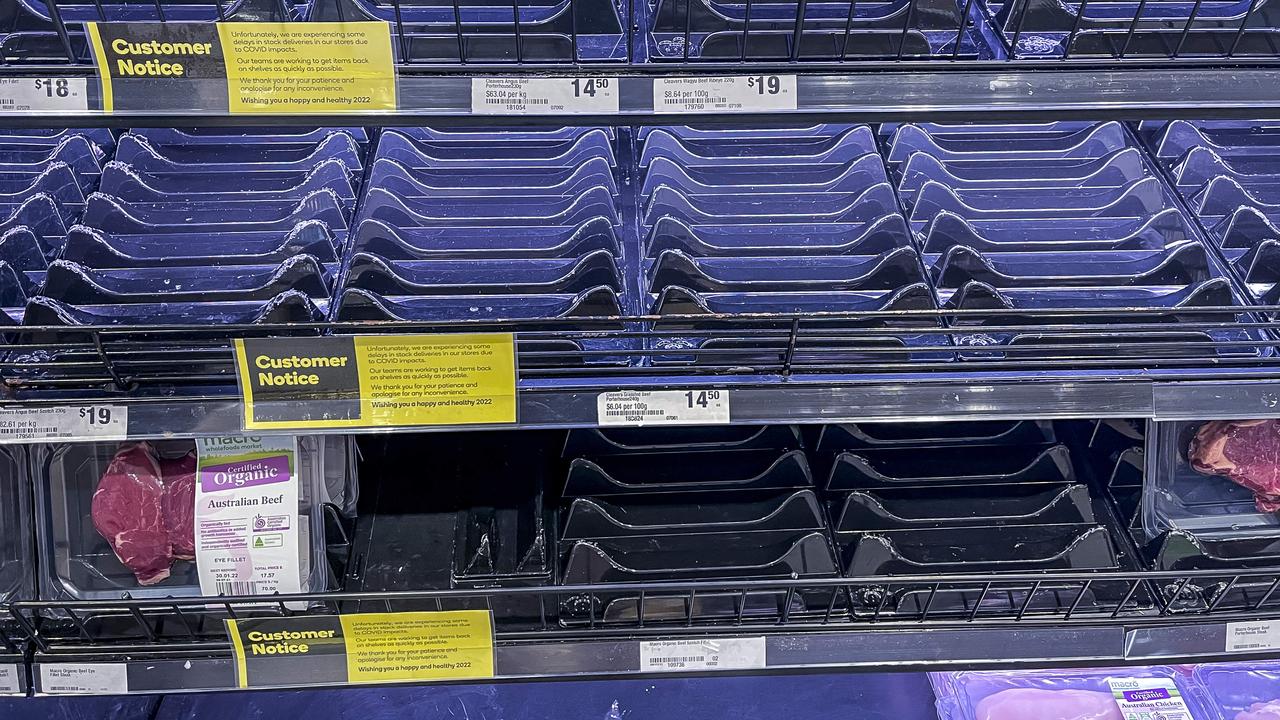
“Governments and supply chain organisations are actively trying to fix things.
“Until things return to normal, people should be patient, get their booster vaccination, and only buy what they need. In other words, stop making the problem worse by panic buying.”
That was echoed in a recent Conversation piece, with international supply chain and logistics experts Sarah Schiffling and Nikolaos Valantasis Kanellos writing that we could easily see a glut of products in the not-too-distant future, as they pointed out just how tough it was for companies to predict how much stock they might need.
“Back orders in many sectors will have been filled, but consumer demand may well be cooling now that furloughs have ended and interest rates are beginning to rise. So some companies might find they end up with an oversupply of goods,” they wrote.
“To avoid this, they will have to level their production rates with demand. Yet demand may still be difficult to forecast – and not only because of Omicron and China.
“A new variant of concern leading to a new wave of lockdowns could easily result in people once again spending money on things rather than holidays and nights out.”

‘Perfect storm’: Crisis here to stay
Retail expert Roger Simpson, who is also the CEO of The Retail Solution, had an even more dire prediction, telling radio station 4BC the widespread crisis would continue to wreak havoc until 2023.
“We are going to have these off and on all through this year,” he predicted, adding the problem was exacerbated by transport workers being massively affected by Covid, alongside a shortage of pallets – a situation he described as “crazy”.
That was echoed by managing director of Sydney freight forwarding firm Stelno Group, Carlos Villazon, who told news.com.au he believed the crisis was here to stay for another 18 to 24 months.
“It’s going to be very uncertain for the next 18 to 24 months for the industry, because whether you like or not, there are only two ways to get stock in the country – vessels or aircraft,” he said.
A major problem has been the lack of regulation of shipping lines, which allows companies to “collude” together and jack up prices, which Mr Villazon said resulted in a “very scary market for everyone”, with companies now starting to push those increased costs on to customers.
At the same time, airlines have drastically reduced their fleets and teams during the pandemic, making it next to impossible for the aviation industry to simply pick up the slack.
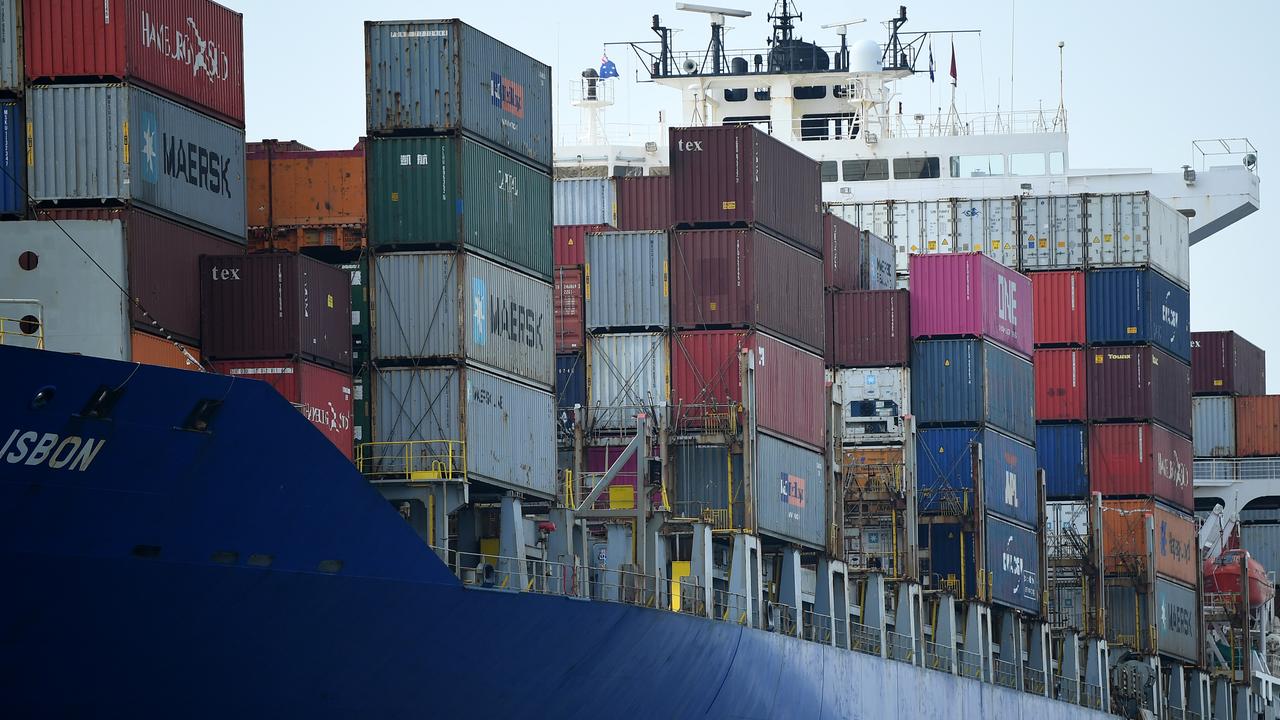
Mr Villazon said skyrocketing shipping prices coupled with Covid and the China-Australia trade war had created the “perfect storm” which had hit the nation hard, with Omicron providing yet another blow.
“In the last two to three weeks, 50 per cent of our casual workforce has dropped like flies, and that heavily affects us,” he said, adding that for many Aussies who can’t work from home, the uncertainly was having a significant impact on their wellbeing.
“With Omicron we’re seeing a massive labour shortage because at the end of the day, we need bodies to move products, cargo and pallets.”
Mr Villazon agreed that we could end up with a glut of products once the current situation eased, with many retailers now ordering 12 to 18 months of stock all at once to prepare for a difficult year ahead.
“It’s only natural that when you’re flooded with stock, demand drops and prices drop, but when that’s going to happen, who knows?” he said.
‘Confusing messaging’ slammed
Jam Pathirana, CEO of B dynamic Logistics, told news.com.au Australia’s shortages were caused by a raft of factors happening simultaneously, creating a “domino effect” with everything from soaring demand for certain items during lockdown to the loss of the backpacker workforce and exploding Covid numbers contributing to empty shop shelves.
His company, which counts household names such as Aldi and Costco among its clients, has up to 20 per cent of staff either sick or isolating at the moment, while up to 30 per cent of the casual team is also off.
Mr Pathirana said miscommunication from the Government was also a factor, with staff stumped by confusing information.
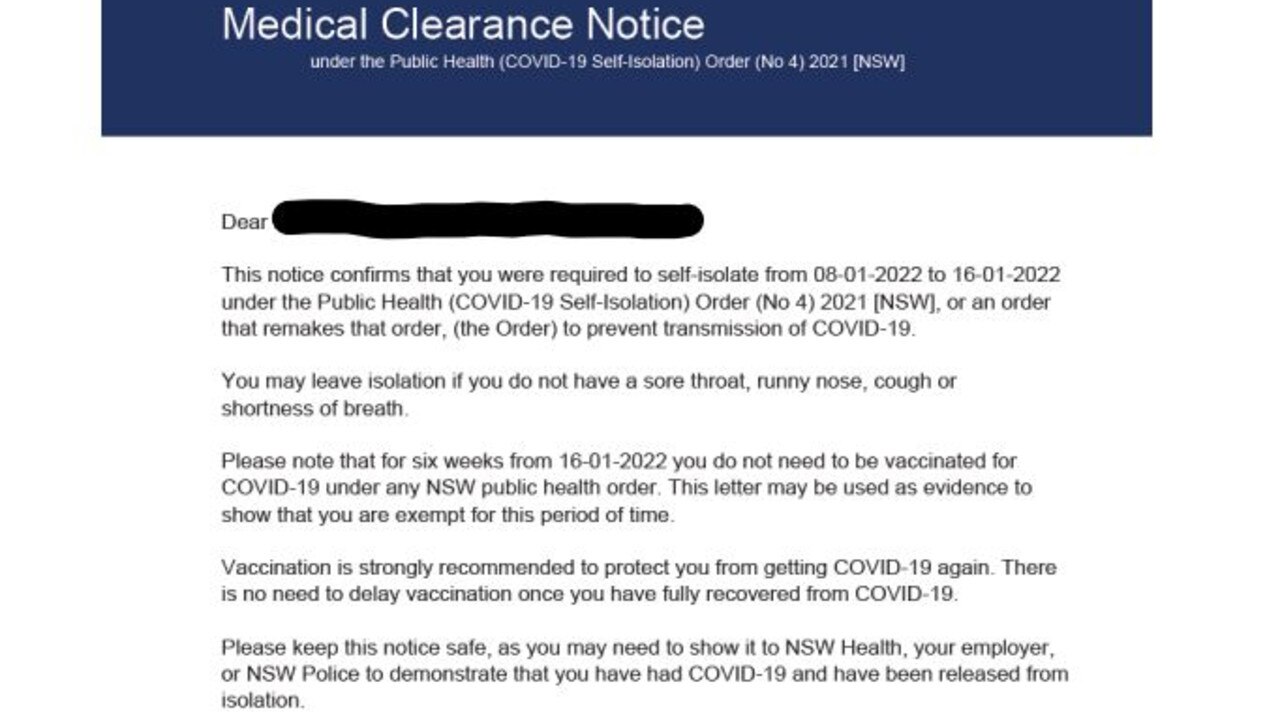
He cited an example of a letter an employee had recently received from NSW Health which said the worker was “required to self-isolate” between certain dates – but in the next line, said they were able to “leave isolation if you do not have a sore throat, runny nose, cough or shortness of breath”.
“It’s not very clear, there is confusing messaging from the Government,” he said.
Meanwhile, Mr Pathirana predicted an “influx” of products would arrive at some point, which could finally see supply outstrip demand – but like most insiders, he didn’t think that would happen for a while yet.
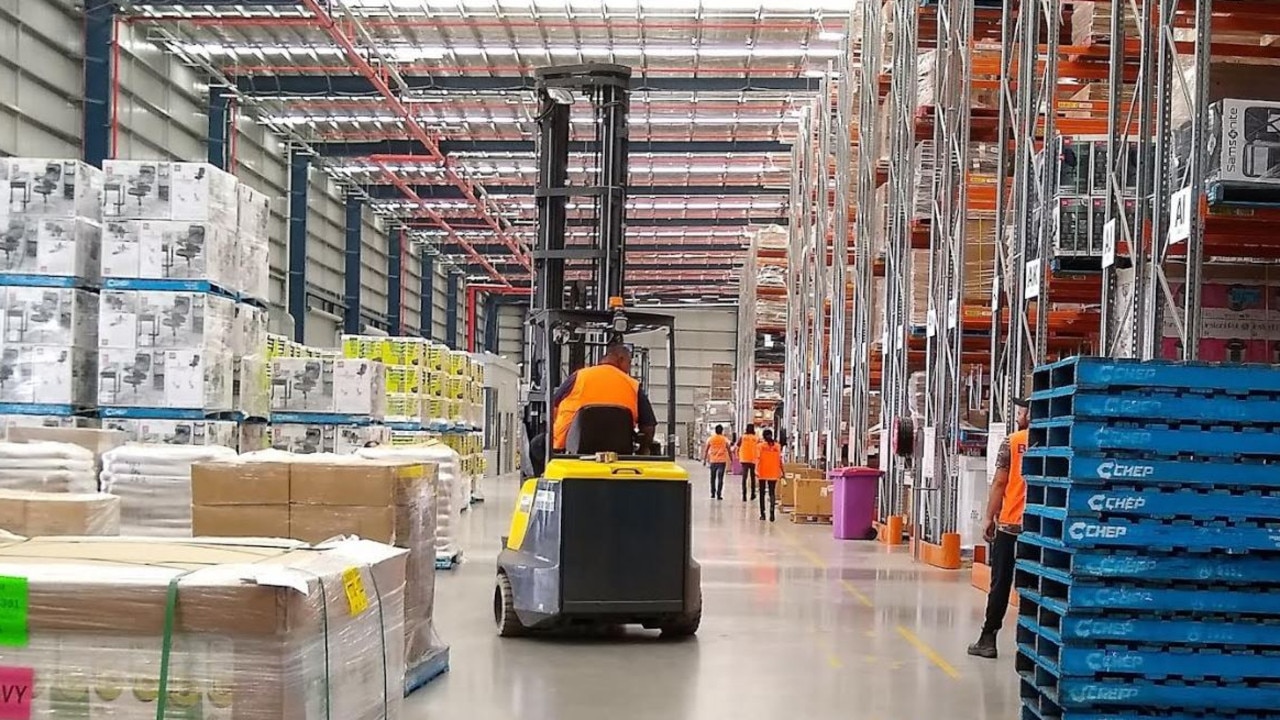
“My personal view is we’ve not seen the peak of this challenge yet,” he said.
“Australia is just starting to experience it, and the most challenging time will be in the next two or three weeks or a bit longer in terms of not having people.”
But he said problems would remain for many months, and urged Aussies to order any Easter goods as soon as possible.
“We expect these challenges to remain at least for the first half of the year,” he said.






